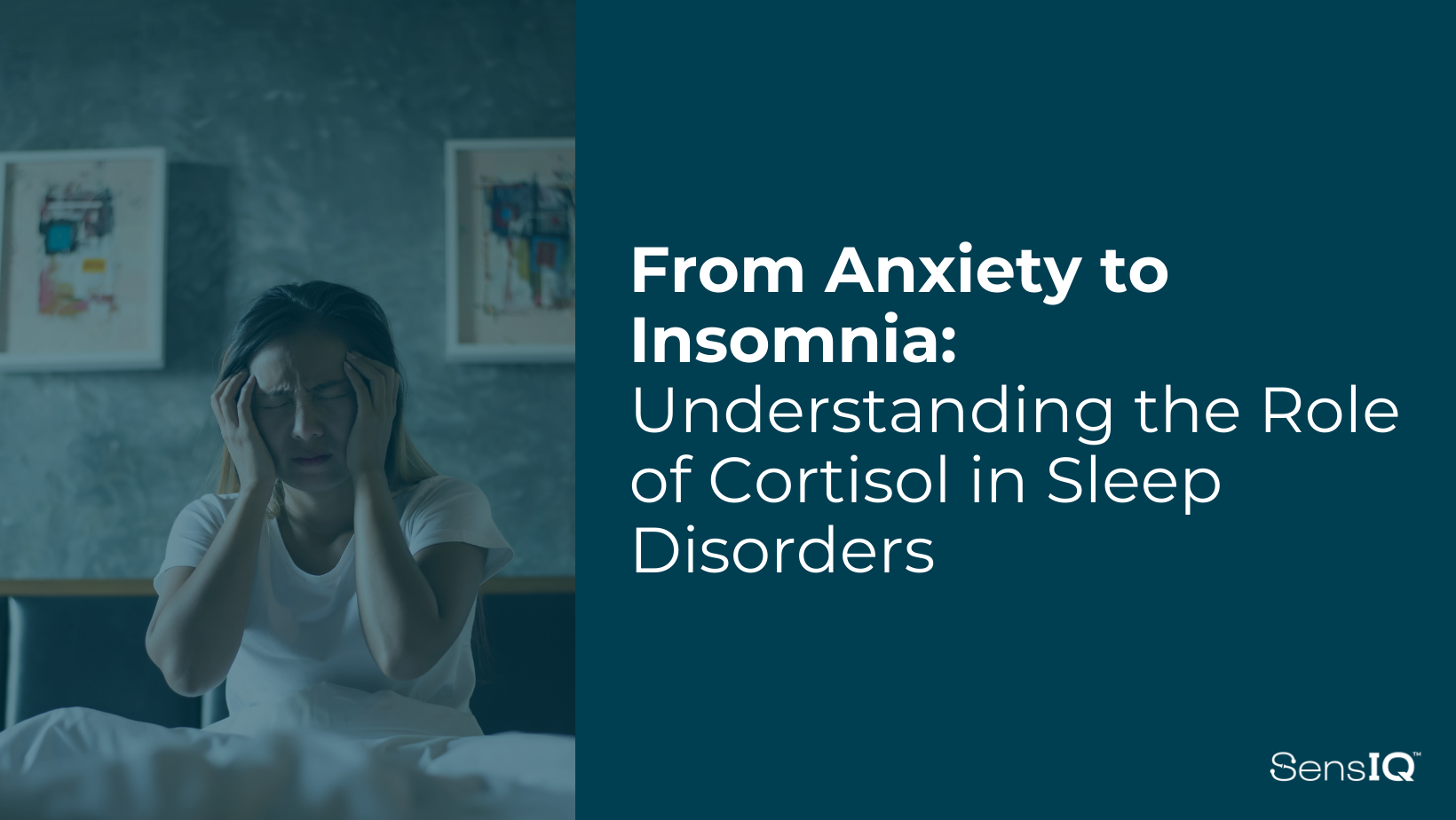From Anxiety to Insomnia: Understanding the Role of Cortisol in Sleep Disorders
In the intricate dance of human physiology, cortisol stands out as a key stress hormone that significantly impacts sleep quality. Its influence is particularly notable in cases of anxiety and insomnia. Cortisol regulates various bodily processes and directly affects REM cycles, which are essential for restorative sleep. Elevated cortisol levels are often associated with poor sleep quality, encouraging both health professionals and individuals to explore effective solutions for stress reduction and better sleep.
This document provides insights into the relationship between anxiety, cortisol, and sleep quality while offering natural solutions like adaptogens to support cognitive health and promote restful sleep.
The Physiology of Cortisol and Sleep
Cortisol’s Impact on REM Cycles
Cortisol plays a critical role in maintaining the body’s stress response, but elevated levels can disrupt sleep stages, particularly REM sleep. During REM, the brain is active in processing memory and emotional regulation. Excess cortisol shortens these cycles, compromising the quality of sleep and impacting mental health.
Research highlights that acute increases in cortisol can suppress REM sleep while promoting slow-wave sleep, further disrupting the natural sleep architecture. Understanding cortisol’s influence is essential for crafting effective stress reduction and sleep management strategies (Born et al., 1999).
Stress Hormones and Sleep Disorders
Stress hormones, particularly cortisol, are major contributors to sleep disorders. Elevated cortisol levels disrupt the sleep-wake cycle, delaying sleep onset and shortening overall sleep duration. This heightened state of alertness can prevent the body from achieving deep, restorative sleep, exacerbating conditions like insomnia.
Addressing this imbalance is crucial for breaking the cycle of stress-induced sleep disturbances. Strategies like lifestyle modifications and targeted interventions can help restore equilibrium and improve sleep quality.
Anxiety and Its Effect on Sleep Quality
Poor Sleep and Mental Health
The connection between poor sleep quality and declining mental health is well-established. Insufficient sleep exacerbates stress and anxiety, impairing cognitive functions like attention, memory, and emotional regulation. This creates a vicious cycle where anxiety further disrupts sleep, leading to a perpetual state of exhaustion.
Chronic sleep deprivation also raises cortisol levels, compounding the challenges faced by individuals with anxiety. Addressing sleep quality is therefore critical to improving mental health and overall well-being.
Insomnia Solutions and Stress Reduction
Effective strategies to manage insomnia and reduce stress include:
-
Cognitive Behavioral Therapy (CBT): Targets changes in sleep habits and misconceptions to foster healthier sleep patterns.
-
Lifestyle Adjustments: Regular exercise, a consistent sleep schedule, and a relaxing bedtime routine can significantly reduce stress and improve sleep quality.
-
Natural Remedies: Adaptogens such as ashwagandha and rhodiola are beneficial for managing stress and lowering cortisol levels, promoting better sleep.
Natural Solutions for Restorative Sleep
Adaptogens in Sleep Management
Adaptogens are natural substances that enhance the body’s ability to manage stress, making them invaluable for sleep management. Botanicals like ashwagandha and rhodiola have been shown to reduce stress, balance cortisol levels, and improve sleep quality.
Ashwagandha, in particular, has been found to decrease stress and anxiety, reduce sleeplessness, and lower serum cortisol levels, providing a holistic approach to improving sleep health (NIH, 2022).
Innovative Approaches to Sleep Disorders
Combining traditional and modern approaches to managing sleep disorders can yield significant benefits:
-
Wearable Technology: Real-time monitoring of sleep patterns offers actionable insights for environmental adjustments.
-
Nutritional Support: Diets focused on sleep-supportive nutrients enhance overall sleep quality.
-
Biofeedback Techniques: Training individuals to manage physiological responses to stress indirectly improves sleep health.
These approaches, combined with adaptogens, offer a comprehensive solution to addressing the root causes of sleep disorders.
Conclusion
Cortisol plays a pivotal role in the relationship between stress, anxiety, and sleep disorders. Elevated levels disrupt REM cycles and overall sleep quality, creating challenges that impact mental and physical health. However, with targeted strategies—including lifestyle changes, cognitive therapies, and natural remedies like adaptogens—it is possible to restore balance and achieve restorative sleep.
By understanding the mechanisms at play and integrating innovative approaches, health professionals can offer effective solutions that address both the symptoms and root causes of sleep disorders. Adaptogens like ashwagandha and rhodiola stand out as promising tools in this endeavor, helping individuals achieve better sleep and improved well-being.
References
-
Born, J., Späth-Schwalbe, E., Schwakenhofer, H., Kern, W., & Fehm, H. L. (1999). Suppression of REM sleep by cortisol. Nature, 397(6725), 132. Available at: https://www.nature.com/articles/1300362
-
NIH Office of Dietary Supplements. (2022). Ashwagandha Fact Sheet for Health Professionals. Available at: https://ods.od.nih.gov/factsheets/Ashwagandha-HealthProfessional/

